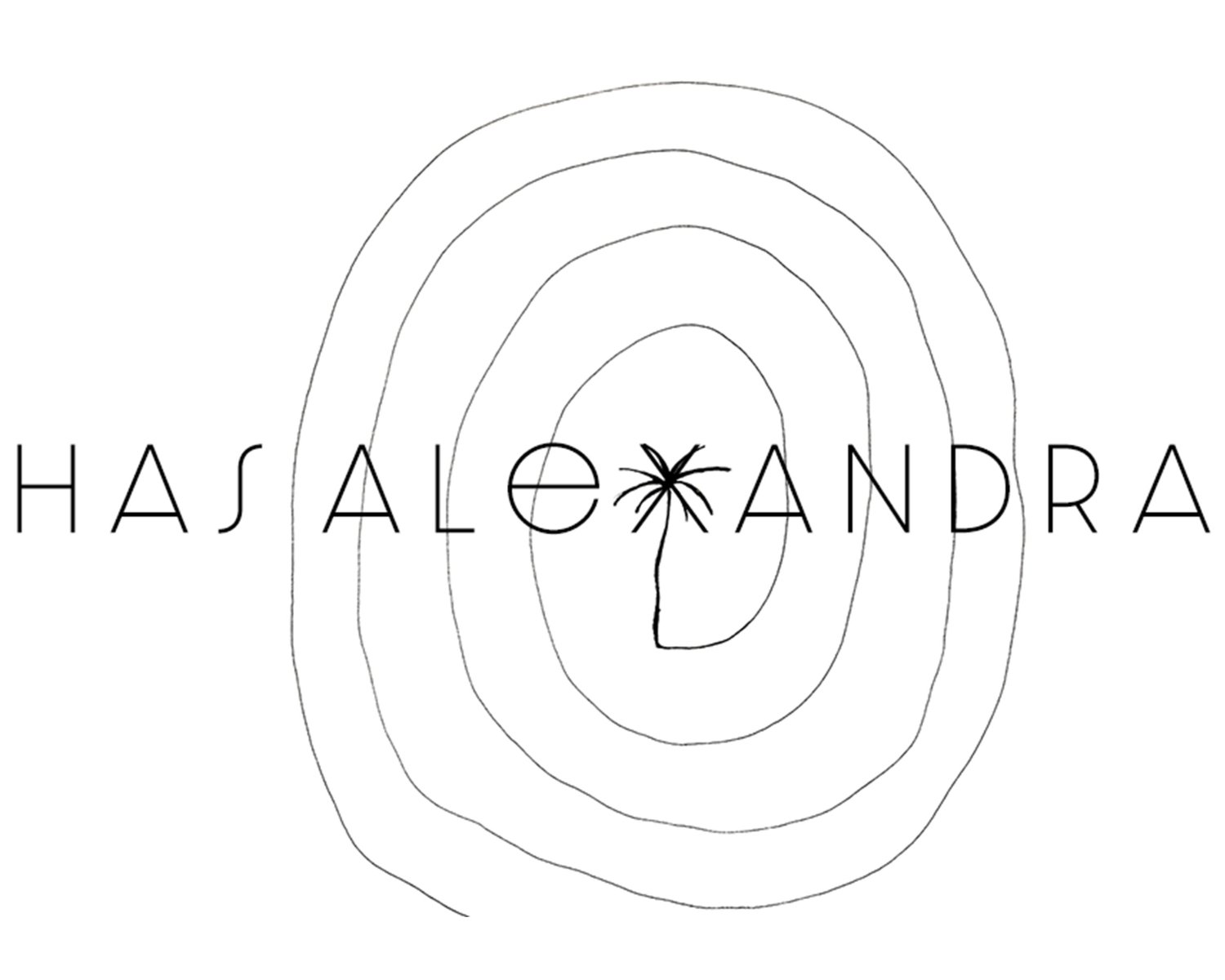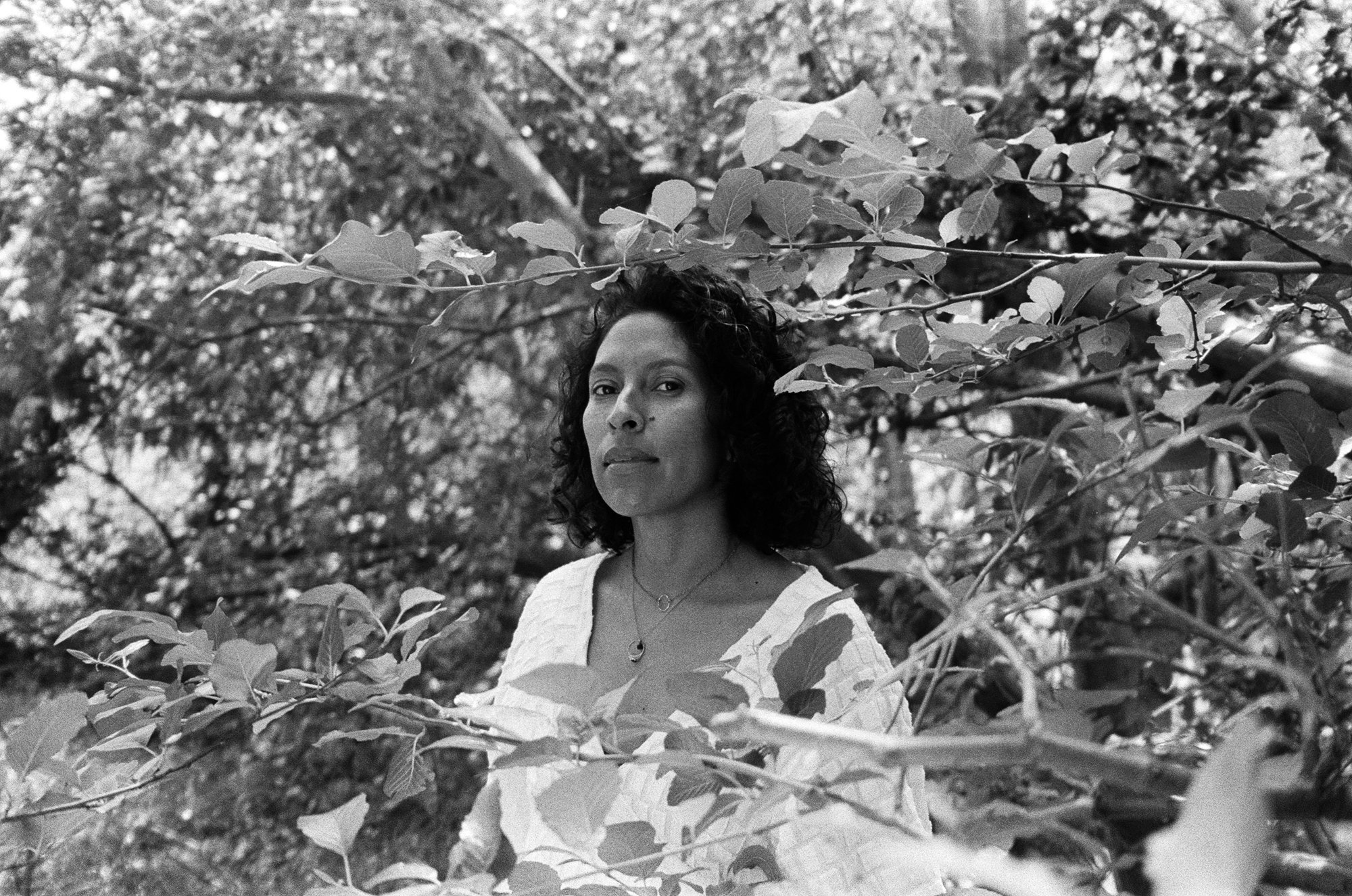
El Salvador
Rosie
my name is Rosie
[Ro-zeE]
My divine roots are from El Salvador (Cuzcatlán)
I used to identify as Latina, but now I identify as Indigenous and part of the Salvadoran diaspora.
I was born in Los Angeles, California, USA.
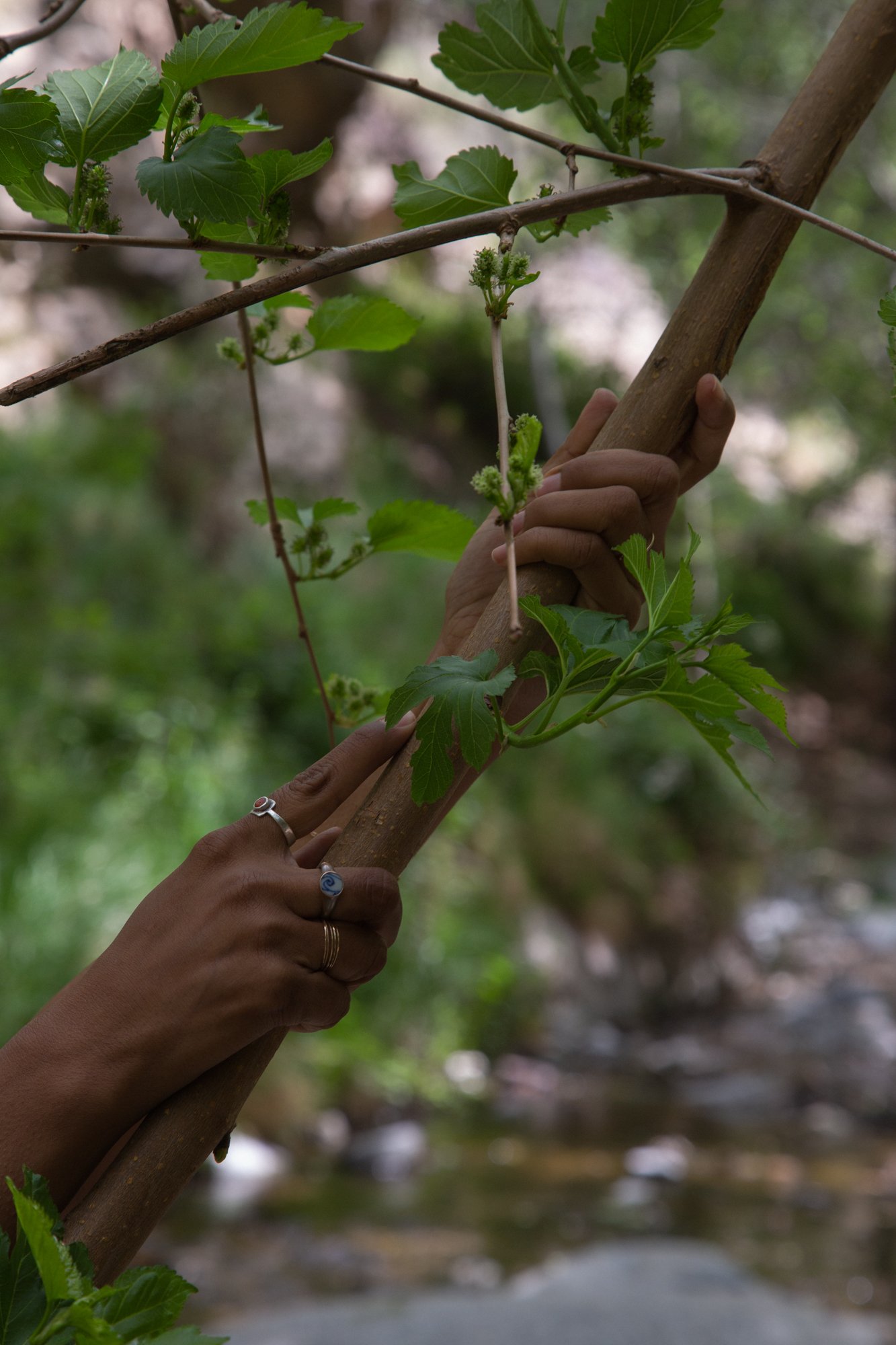
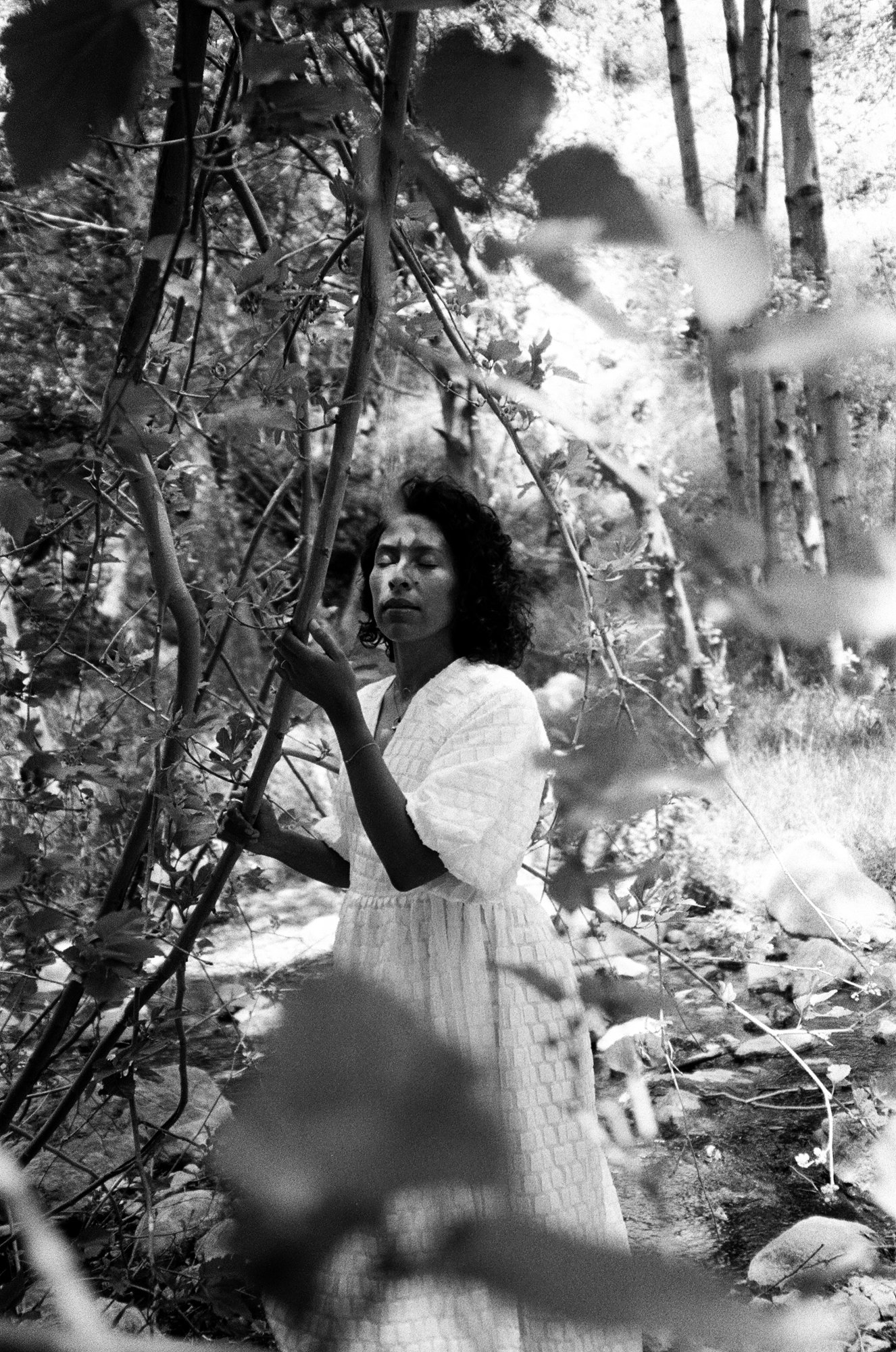
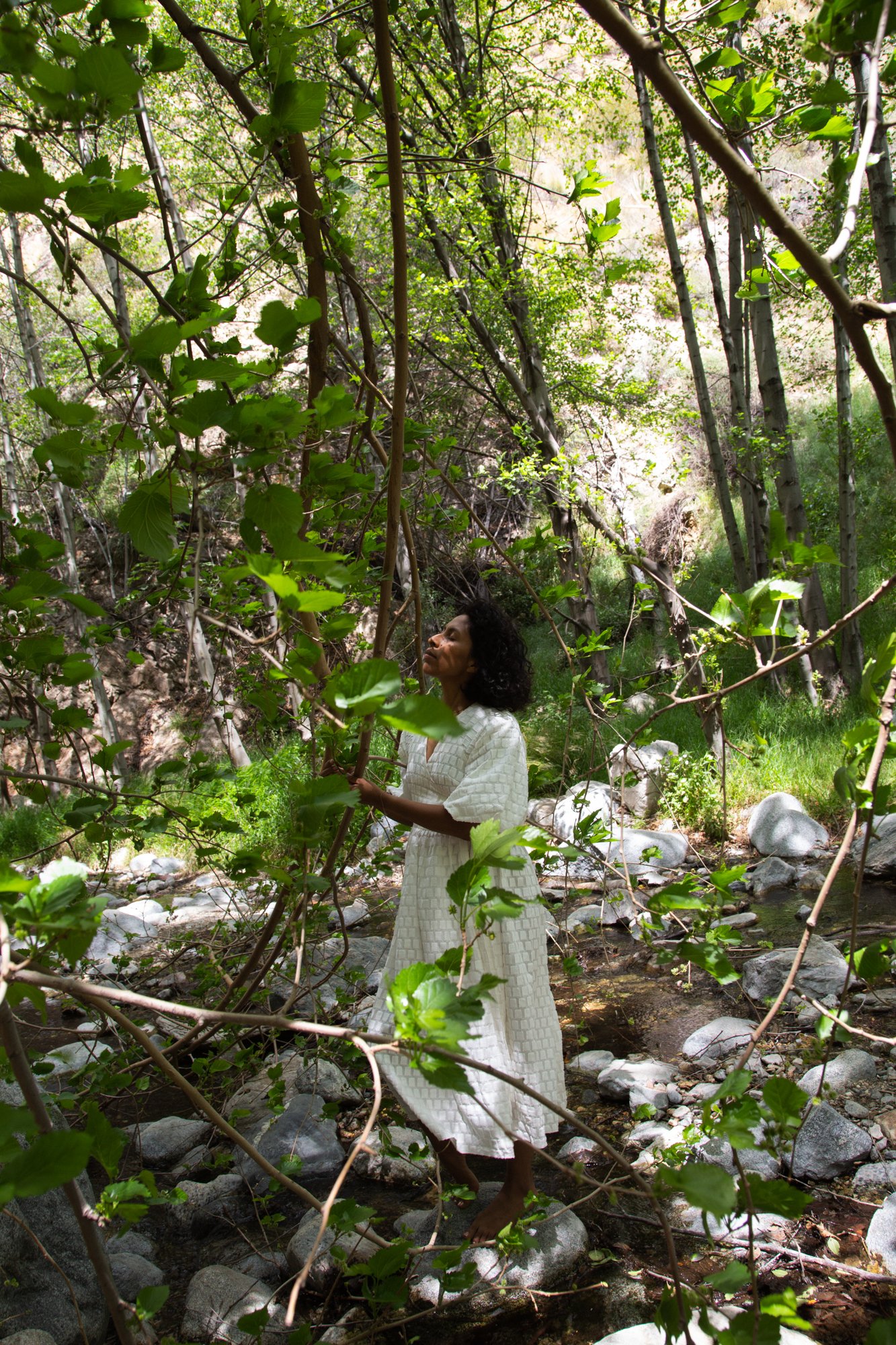
ROOTS
Both of my parents were born in El Salvador and separately immigrated to Los Angeles in their early 20s.
My dad was clear that he wanted a family but did not see the opportunities for himself in El Salvador, so he chose to make the leap to pursue more work opportunities in America.
My mom was sent by her family for reasons she was never told.
My dad used to drive the bus in El Salvador and had seen my mom working at the mercado on his route, but it wasn’t until they were both in Los Angeles that they formally met serendipitously.

have you visited the land?
I visited El Salvador in 2007 with a good friend who also has family there. I was able to meet up with some of my mom’s extended family and they took me to see my dad’s old house and where my mom used to work. I look forward to the day I can go back with both my parents and siblings so we can experience it together.
do you speak the language?
I speak Spanish but I don’t speak Náhuat which is the indigenous language.
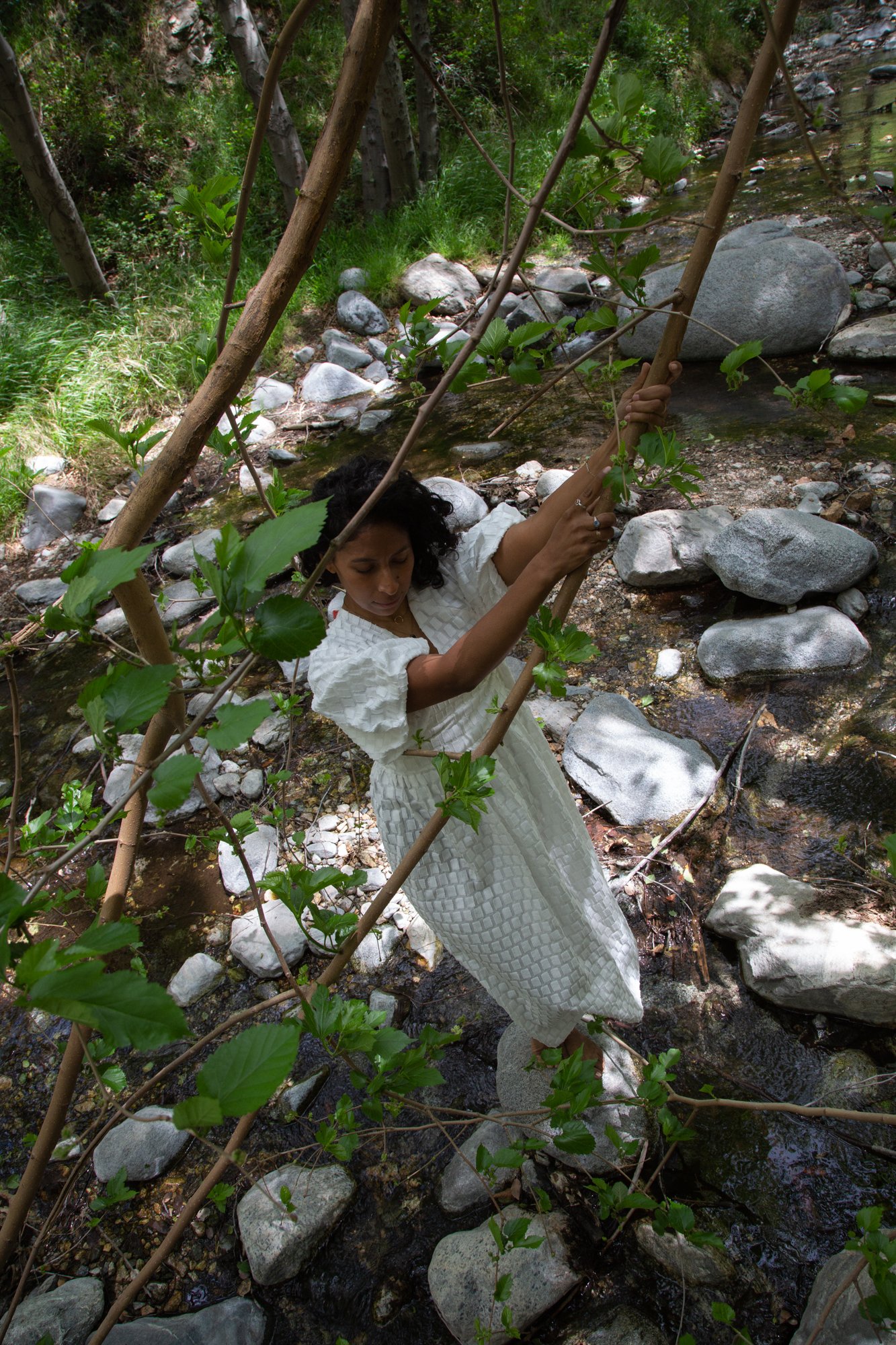
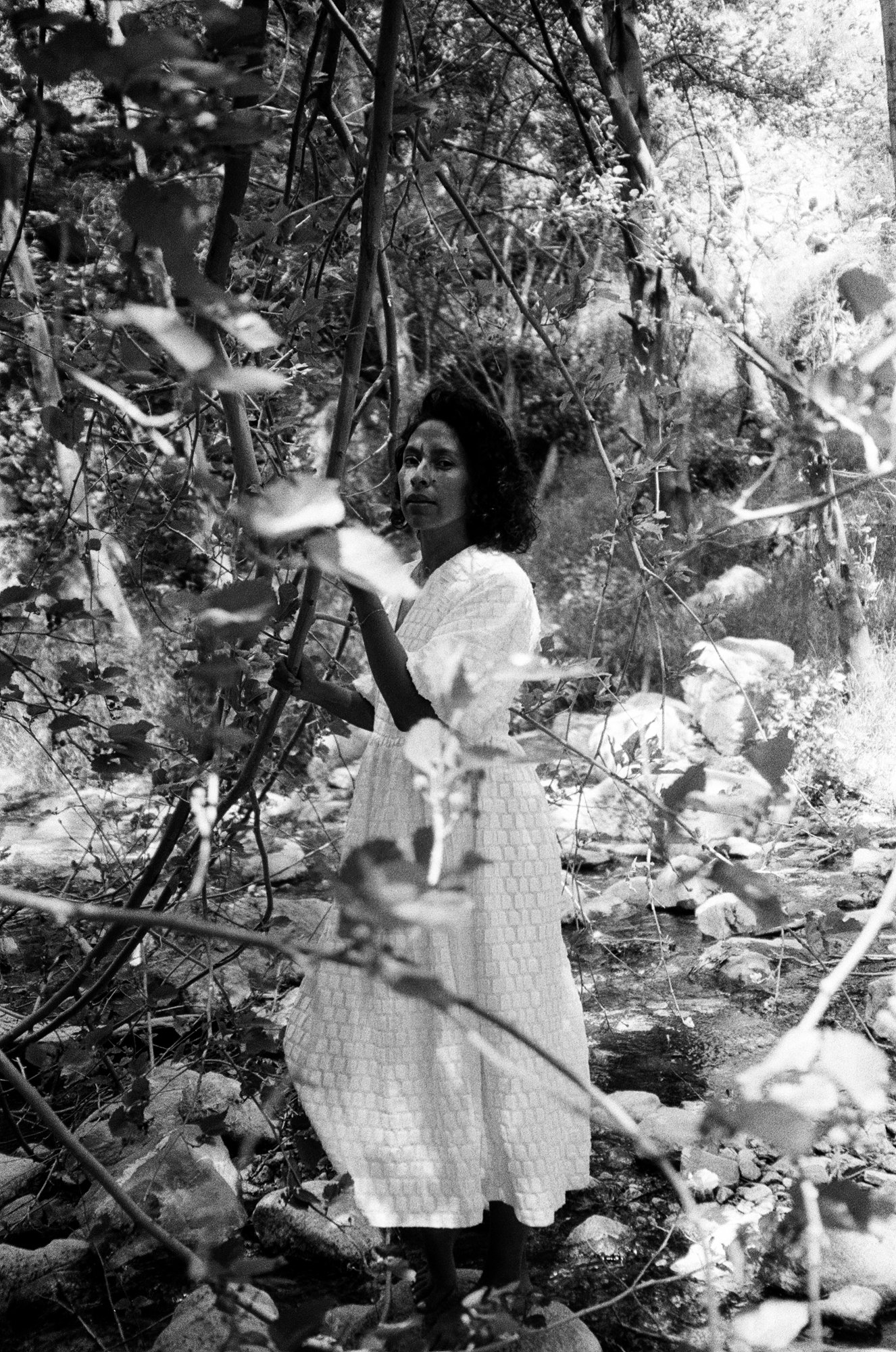

we shot at Eaton Canyon Falls in Pasadena, California — why does that setting feel like home for you?
I’ve lived in several cities in Southern California, and even lived abroad, but Pasadena feels the most like home. I’ve lived here for over 10 years with my partner and we started our family here. I specifically chose Eaton Canyon because as my teacher Dr. Rosales Meza taught me, I can connect to my ancestors through the land. When I’m here I forget that I’m in a city and can more easily access that connection to my ancestors through the trees, the wind, the water streams, and nature herself.
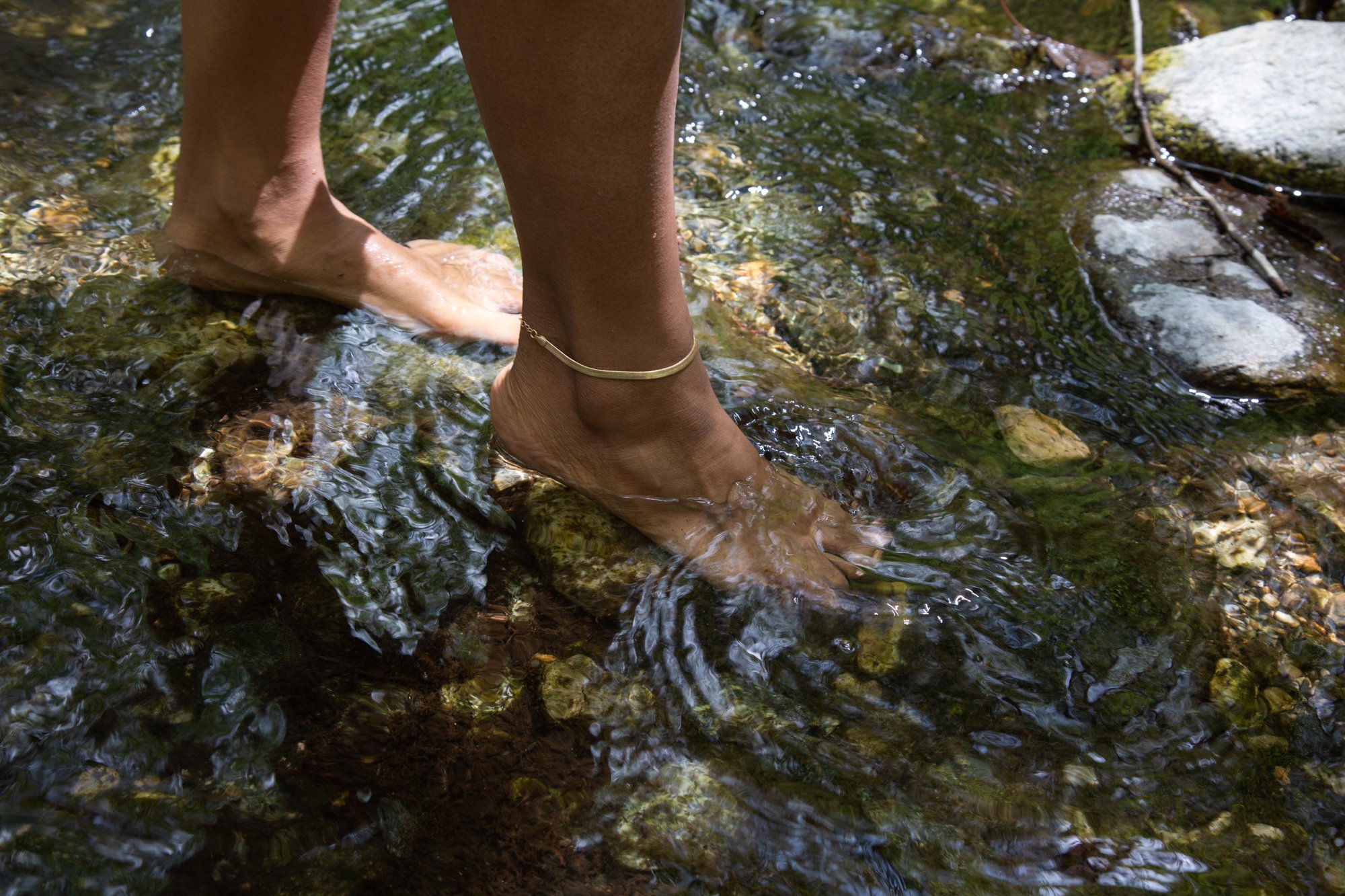
what do you love most about la?
I love the diversity, especially in Pasadena. I love that my kids can grow up around people that look like them and don’t look like them, and find beauty in that. I love our cultural salad bowl where we can learn about other customs and still celebrate our own. I love that I can go to a KCRW event in DTLA and dance to cumbias alongside people of all shades. I love that there are so many creative people out here trying to make their visions a reality.
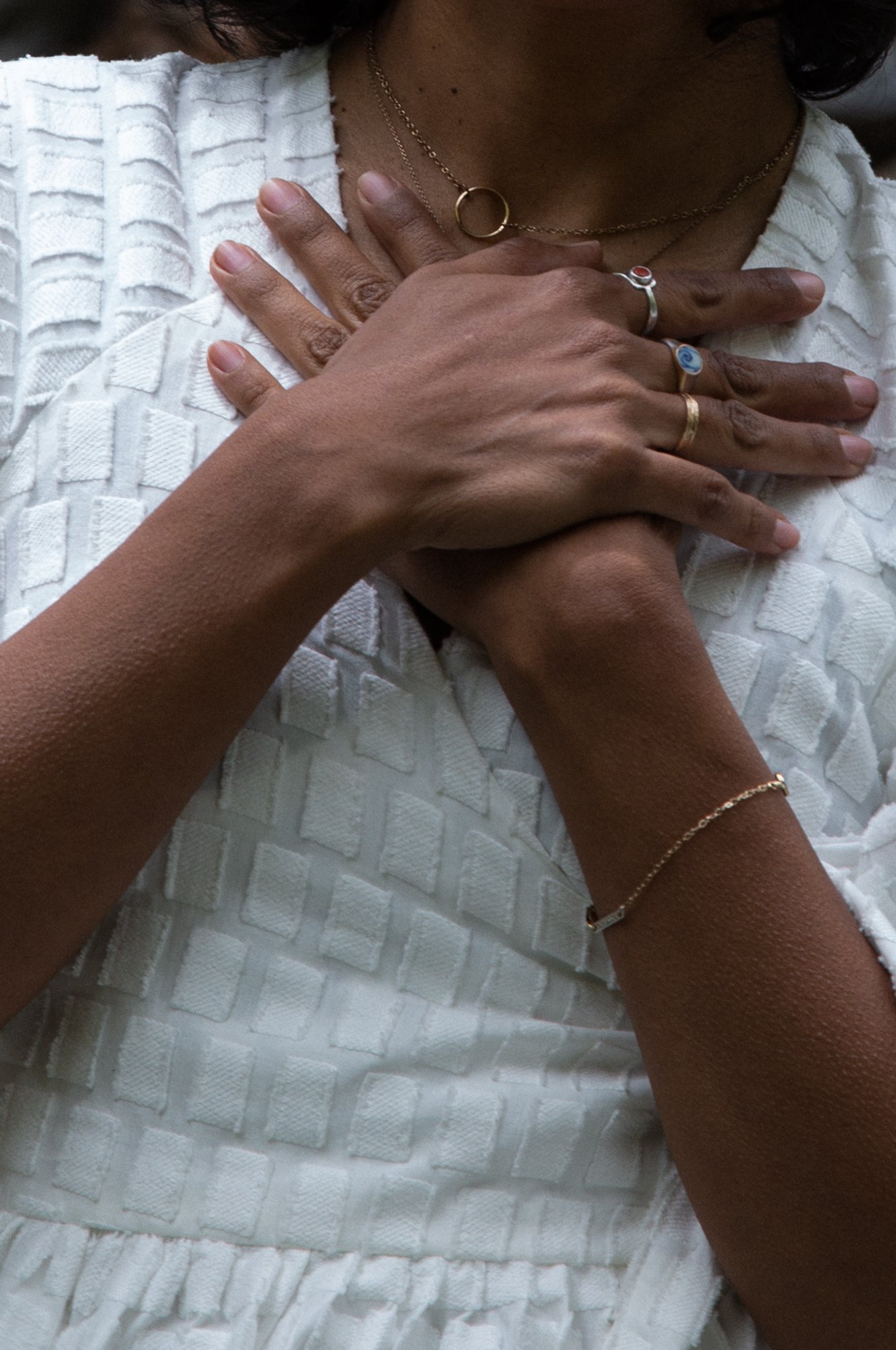
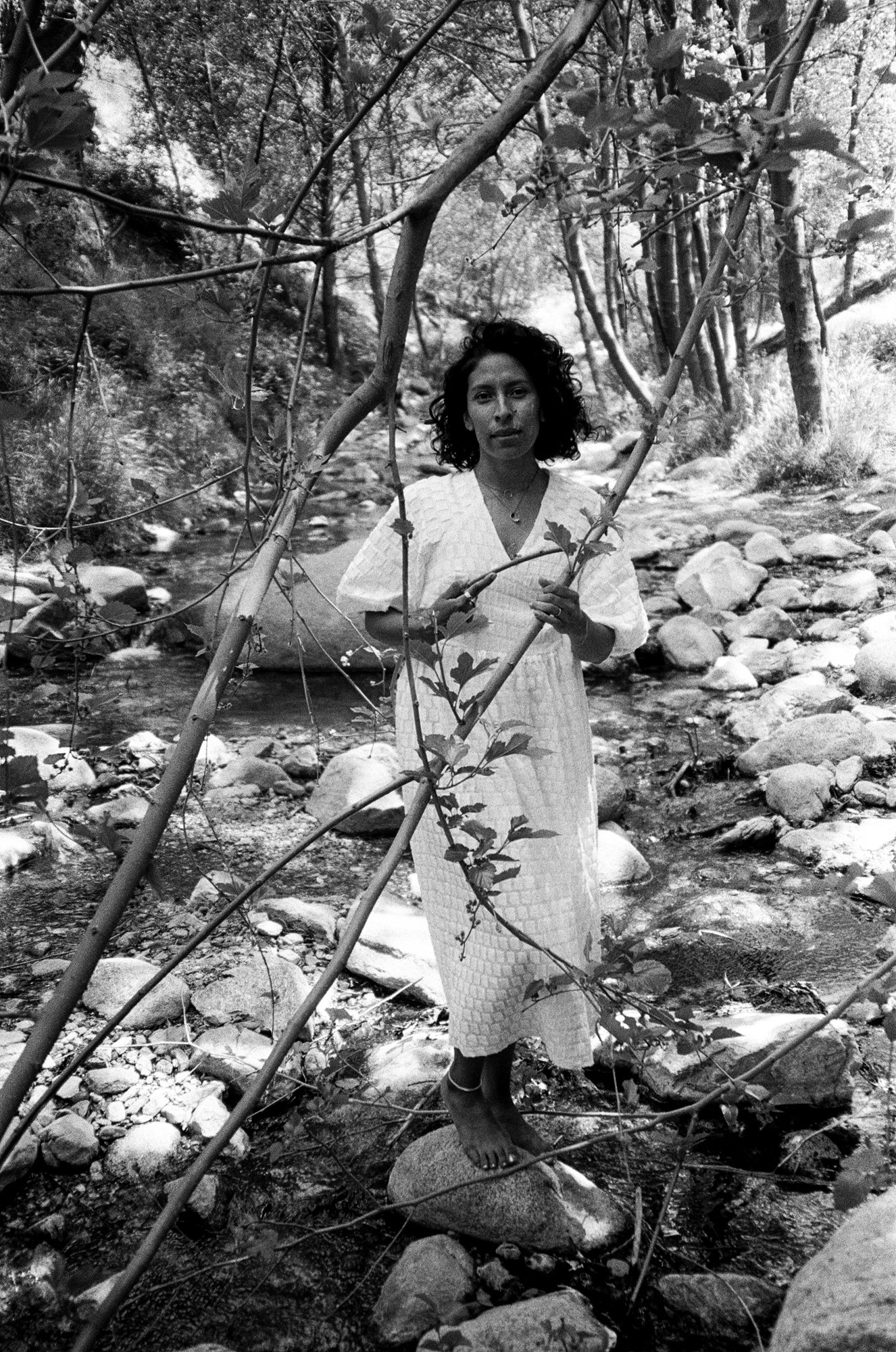
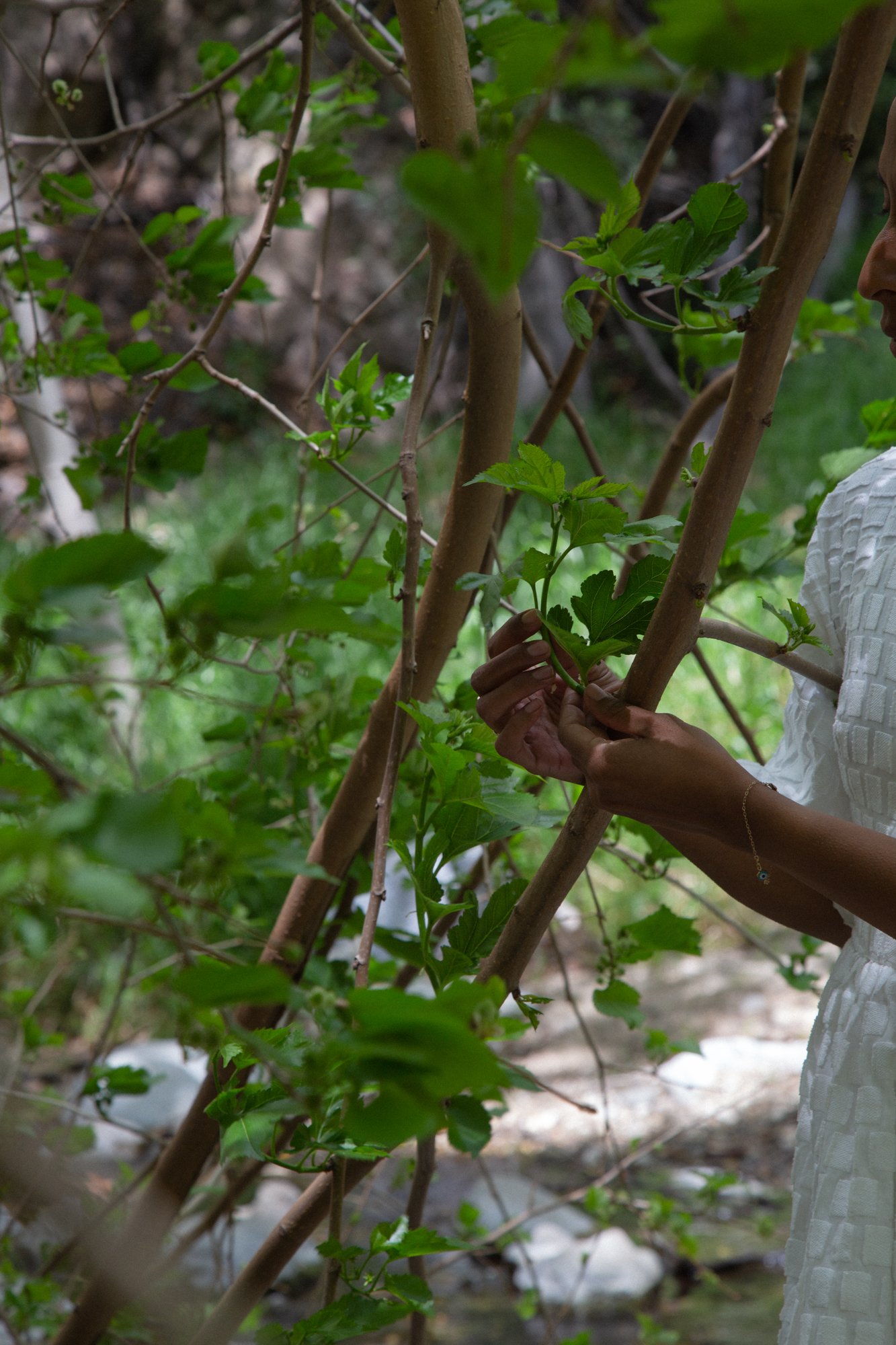
what don’t you love about la?
As diverse as it is, communities still tend to self-segregate here and it takes intentionality to break free from that. So many issues we face as a country could be improved if we had meaningful exposure to other races and ethnicities, so that we could realize how connected our struggles are and create true solidarity. We have that opportunity here in los angeles but for several reasons, it doesn’t happen as much as you’d think.

how has your experience in la affected your worldview?
My open-mindedness is a result of growing up with immigrant parents and learning about their experiences while actively having a whole different experience because of the opportunities I was afforded in the United States. Having had access to a college education, and specifically studying Sociology, while living in such a diverse city has helped me think about the world beyond my own little bubble.
I’ve also had the opportunity to cross paths with many creatives here and that has inspired me to follow an entrepreneurial creative path myself, which isn’t necessarily expected or encouraged as a daughter of immigrants.

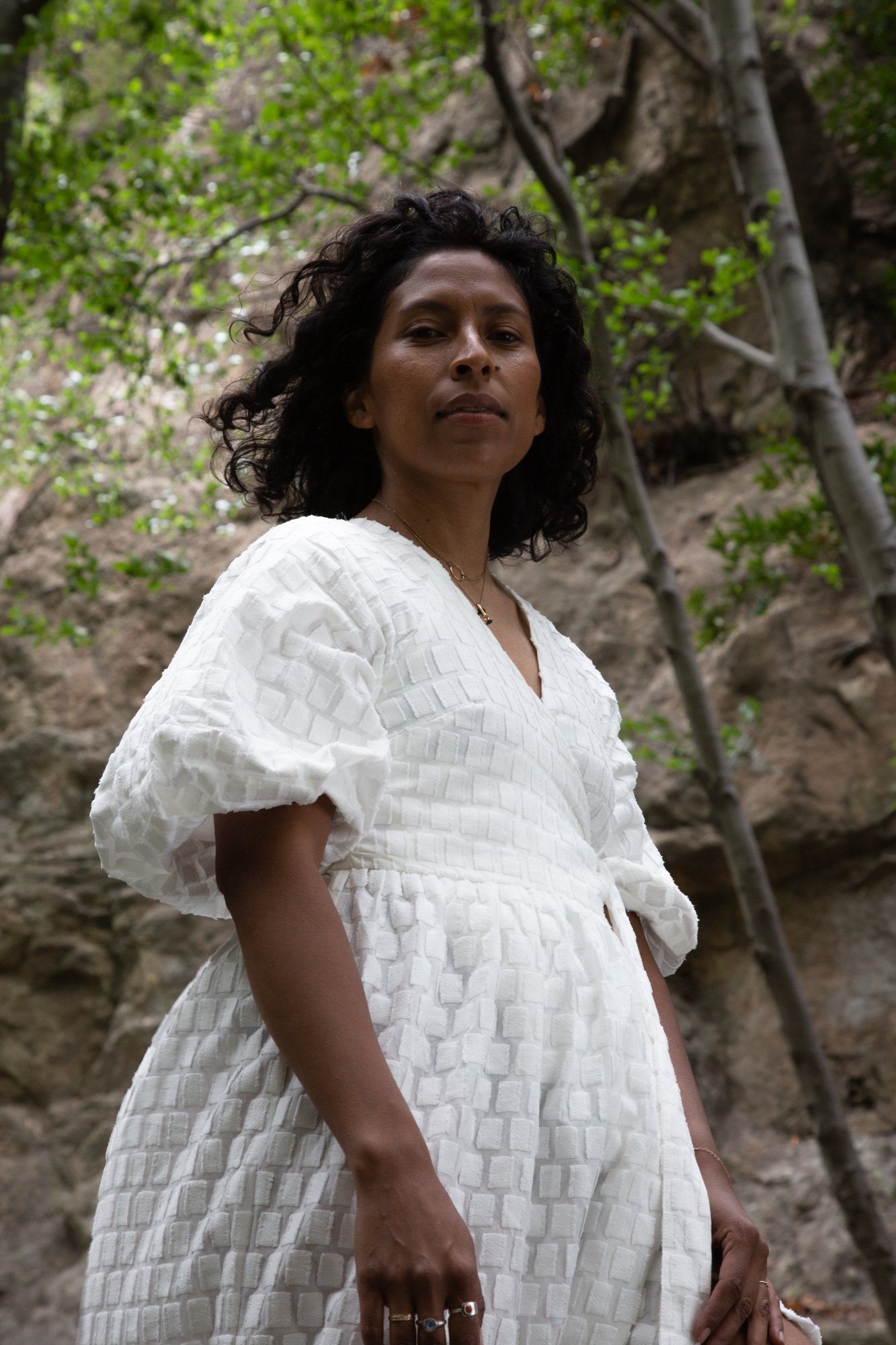
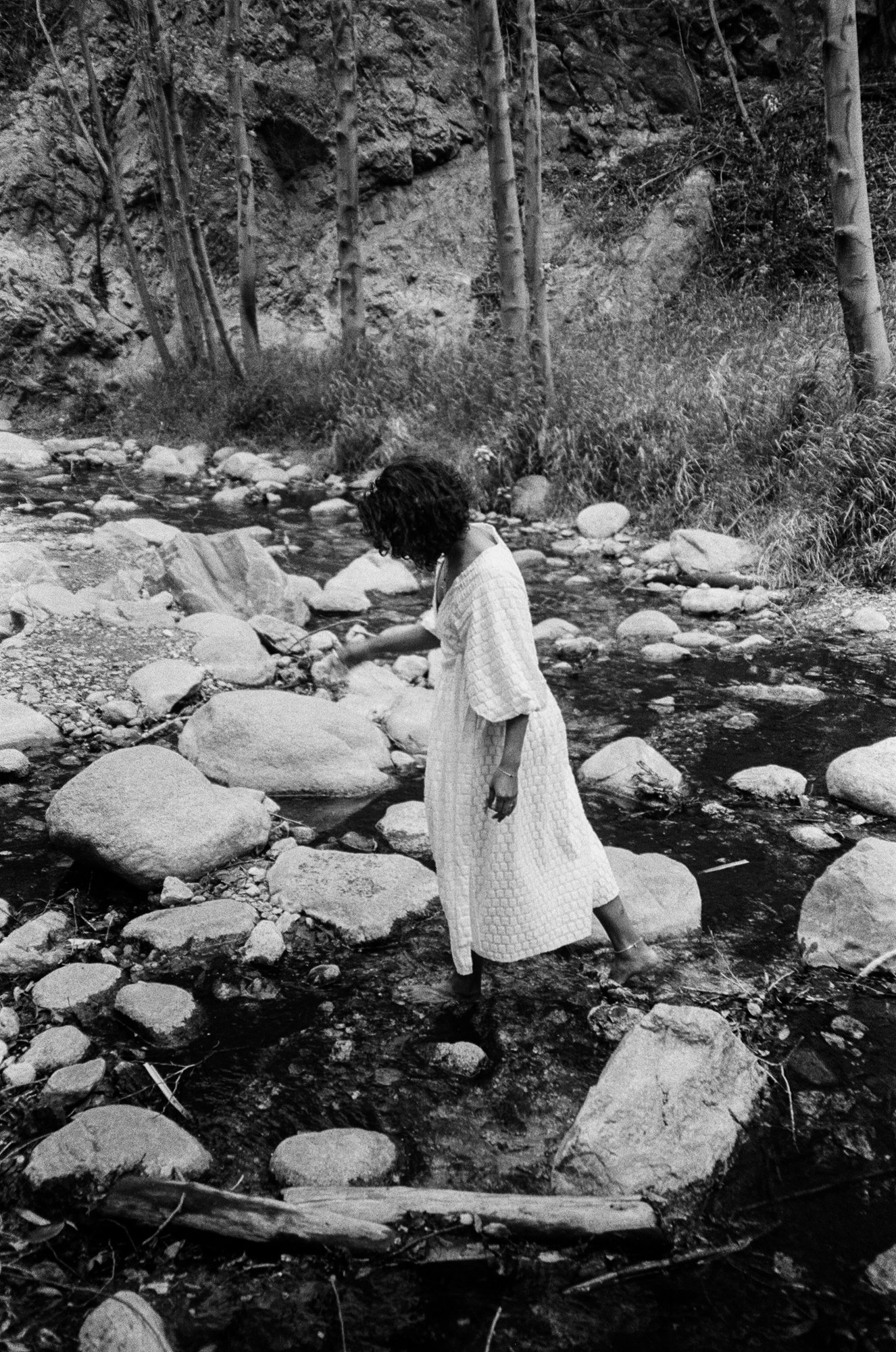
what are examples of intergenerational resilience in your culture?
This is something I took for granted but as I grow, I value the raw humor and tenderness from my people even more.
My dad embodies this resilience as he frequently shares “chistes” with us and refers to me and my siblings as “amores de mi vida” (loves of his life).
I also cherish the strength I see in many of the women especially. My mother, despite the trauma of her childhood, shows me how unflinching her determination is and how that trauma did not make her bitter or a victim, but instead made her want the best for her children.

what are examples of intergenerational trauma in your culture?
I think intergenerational trauma transcends specific cultures because a lot of it has been perpetuated by colonization which has touched so much of our globe.
Two years ago I became intentional about starting to clear the intergenerational trauma I carry in my body through a container I joined lead by Marilu Shinn. A lot of emotions surfaced around colonization, r-pe, mother-child separation, and the fear of claiming and being seen in the power of my spirituality, and so much more.
I am still processing and recognize I’ve picked up trauma that is not all mine and I recognize if I don’t address it, I can unconsciously pass it on too.
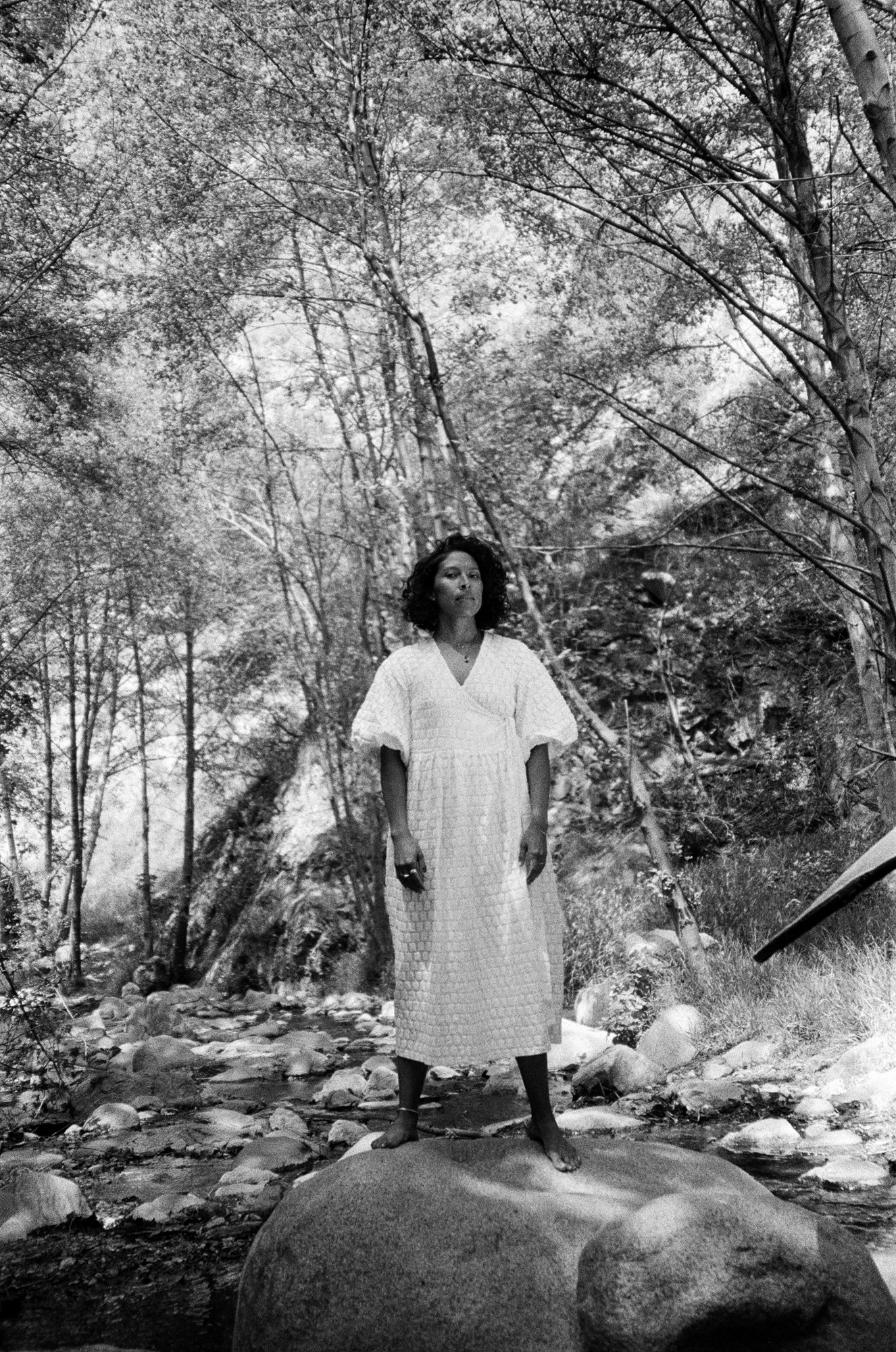
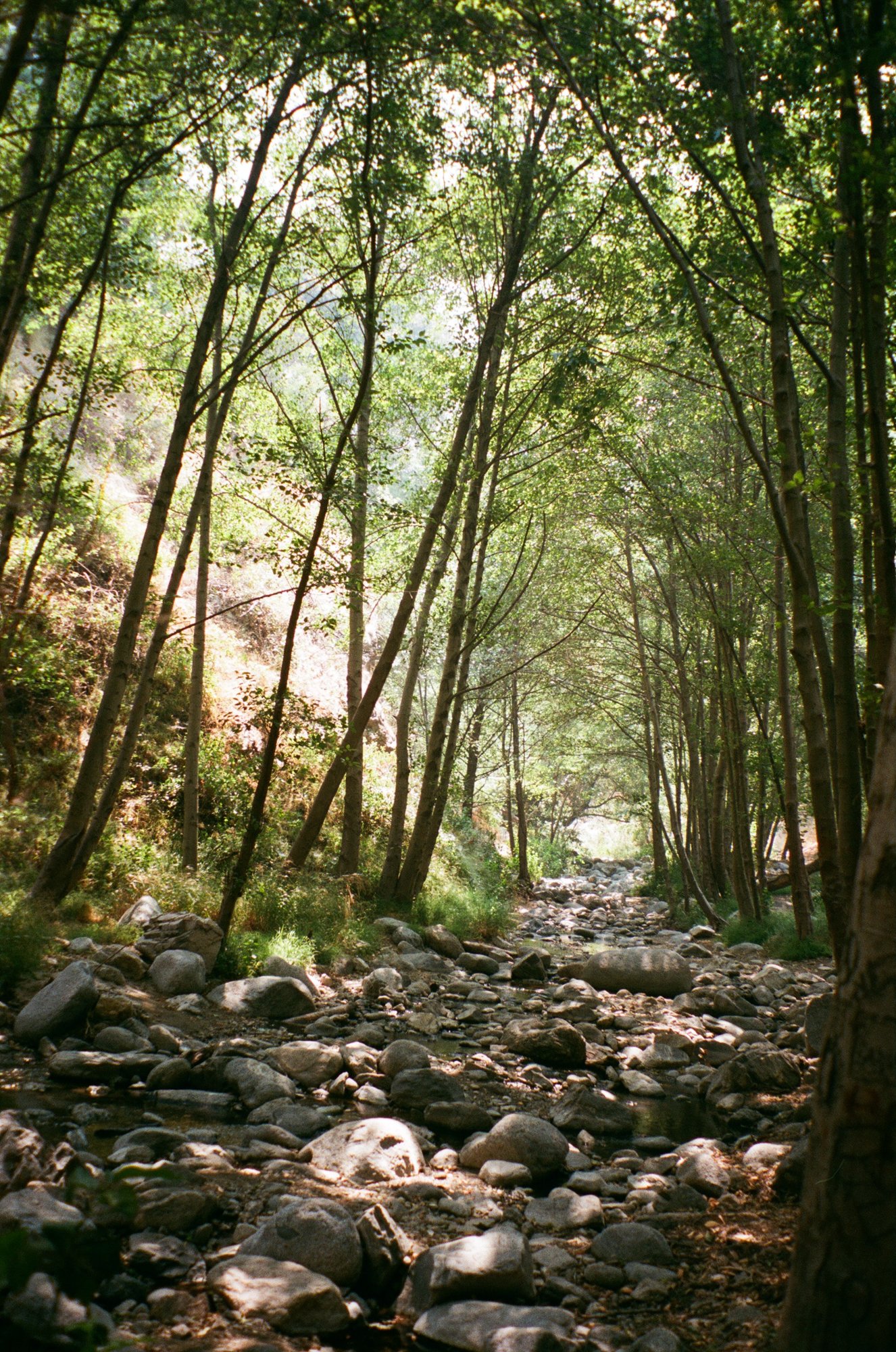
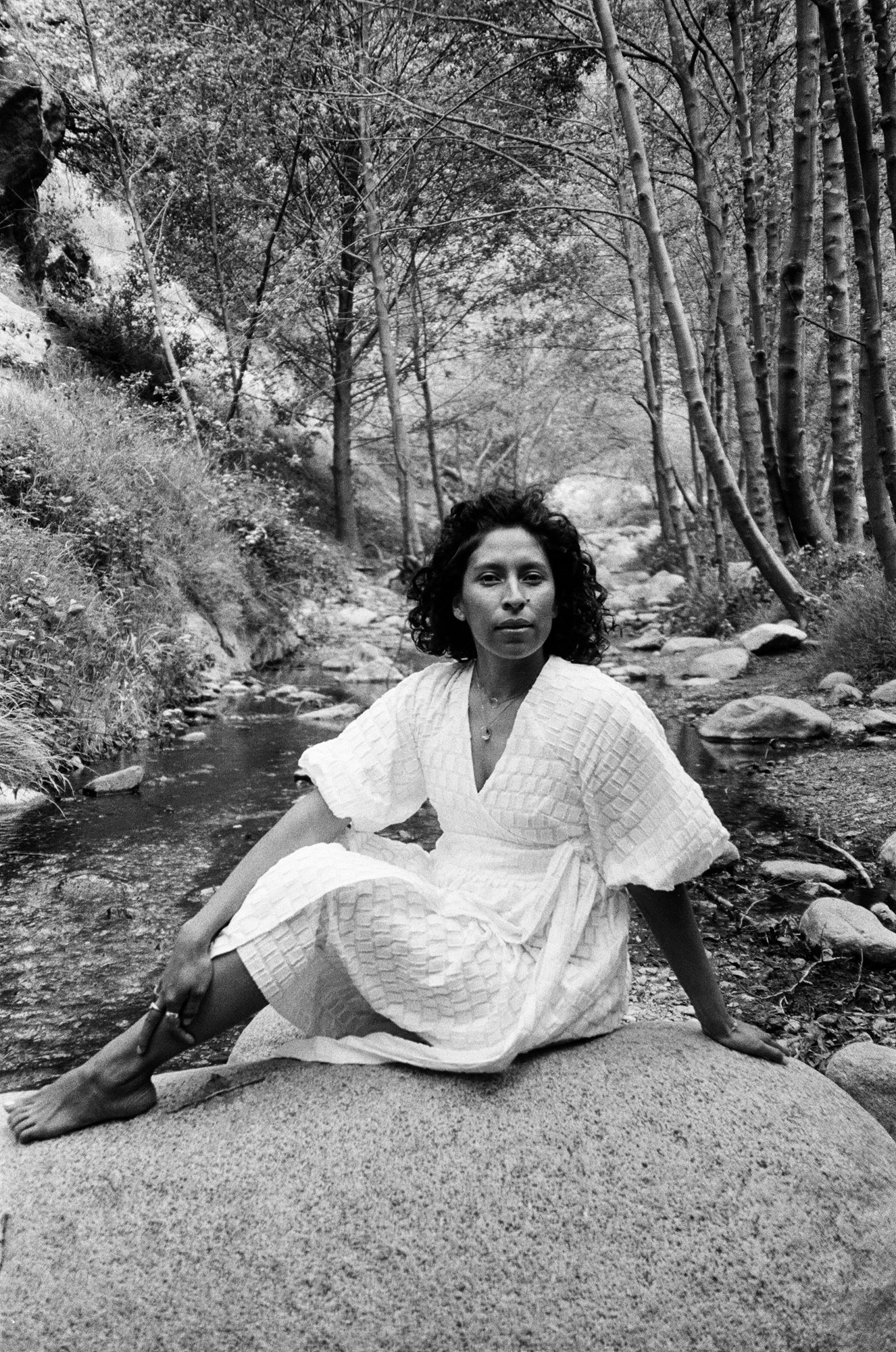
how do you break the cycle?
I understand that in this line of ancestry, I’m at a point of privilege. I have resources, teachers, and space to process what my ancestors could not because I am not in survival mode. The fact that I can recognize it and point it out makes it my responsibility. And as a mother, it’s my priority.
Curiosity and the pursuit of knowledge are their own types of resilience. Even if your lineage has been oppressed for so long, it only takes one person to start the process of healing, knowing that it will continue after you. I am a product of the work my mother and father did to break cycles, and I will continue that work with my children.
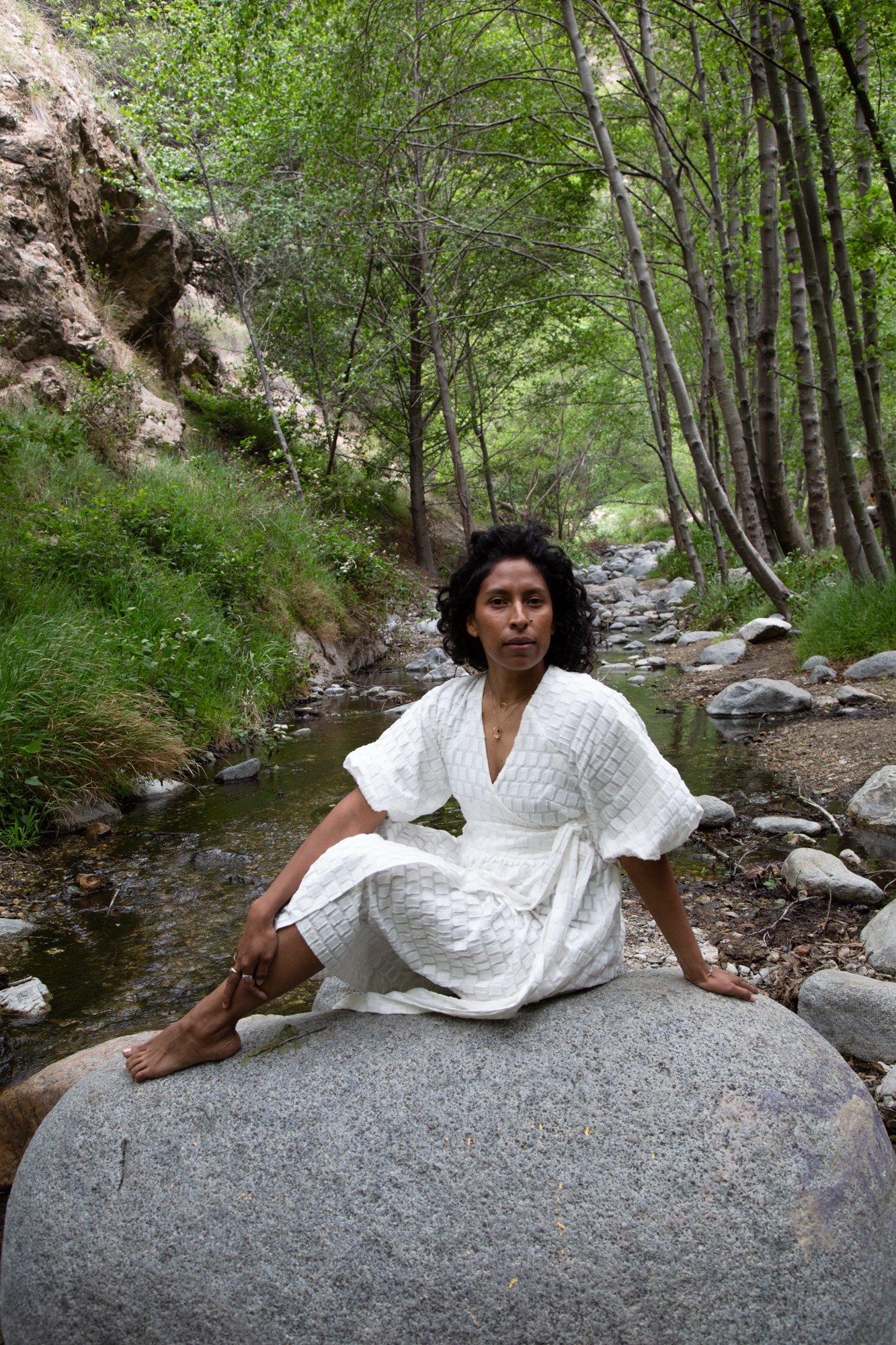
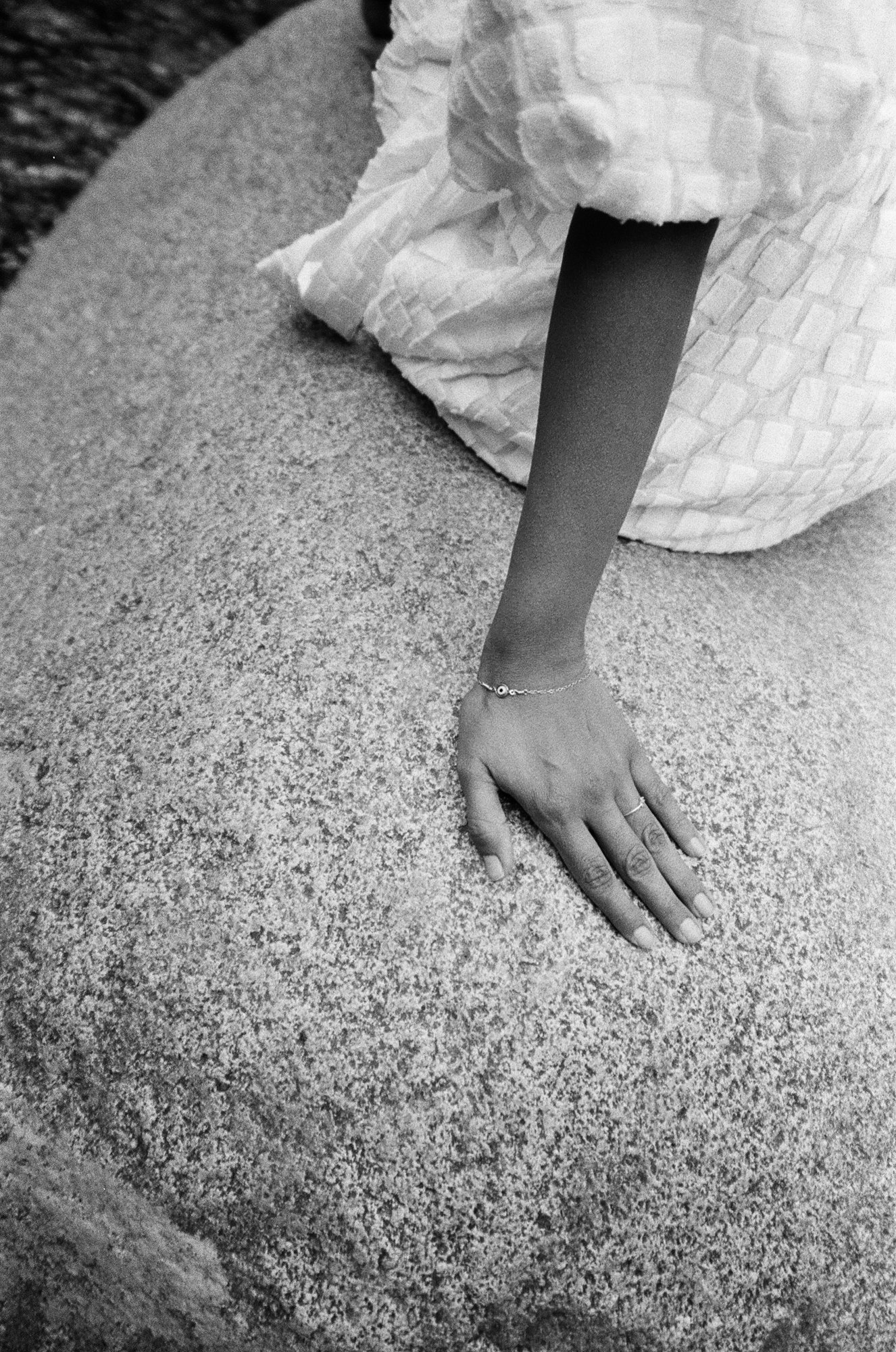
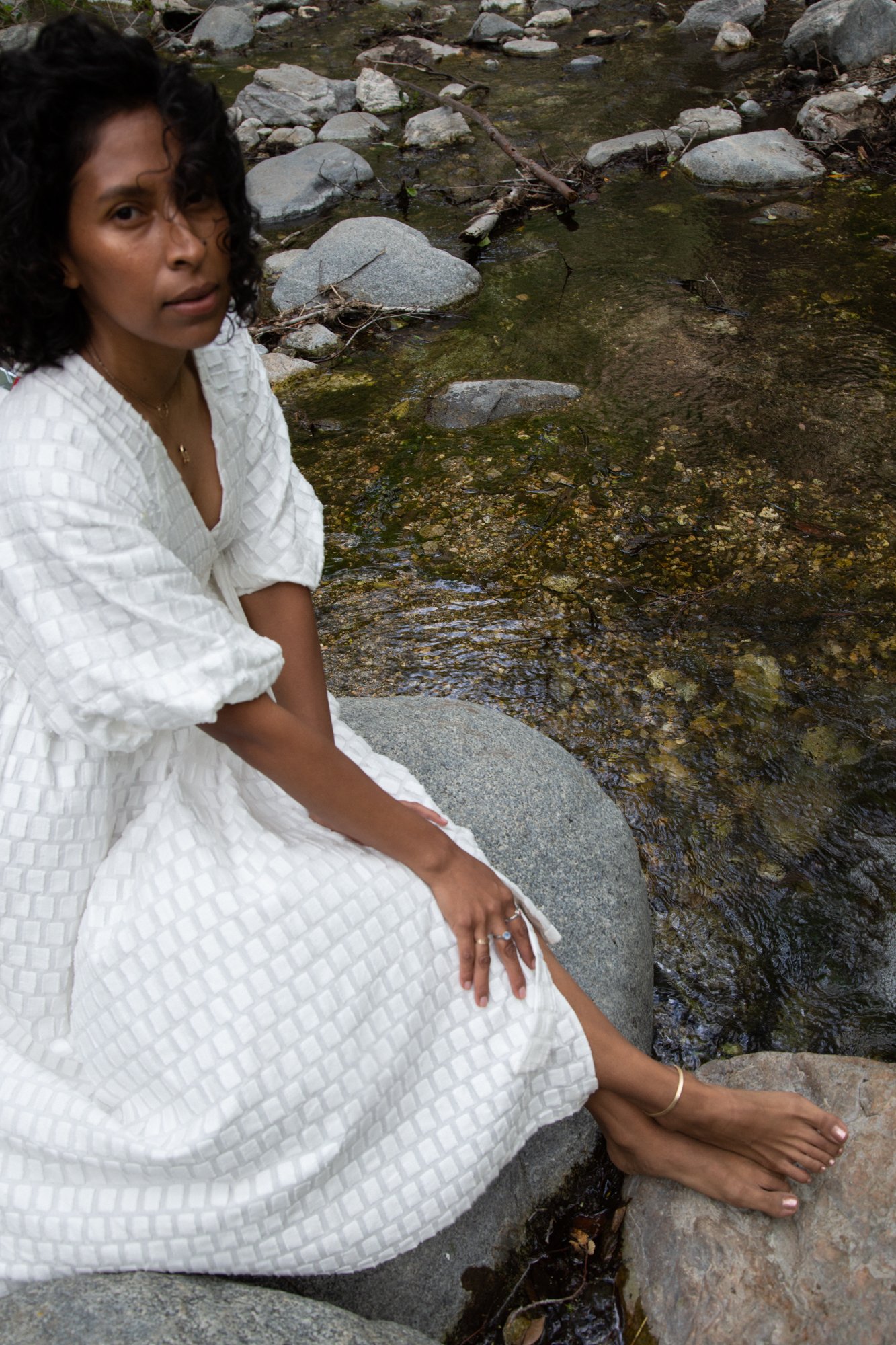
how do you honor your roots / culture?
I honor my roots through the process of unlearning and remembering. Unlearning means I question everything that I previously took for granted and re-examine ideas and ideals that have been deemed superior by mainstream culture. Remembering means I’m on a journey to return back to my roots by learning more about the history of El Salvador and the indigenous people that inhabit the land so that I can pass that wisdom onto my kids and future generations.
I am also reindigenizing my spiritual practice, which has been evolving the last few years thanks to my teachers: my mother, Dra. Rosales Meza and Medicine Woman Marilu Shinn. I built an altar to connect to my ancestors for the first time last year. I grew up seeing my mom do it but didn’t connect to the practice until now. Plant medicine is also something my mom has always practiced. Growing up I’ve taken it for granted but my appreciation and honoring of the power of plants has increased throughout my adulthood.
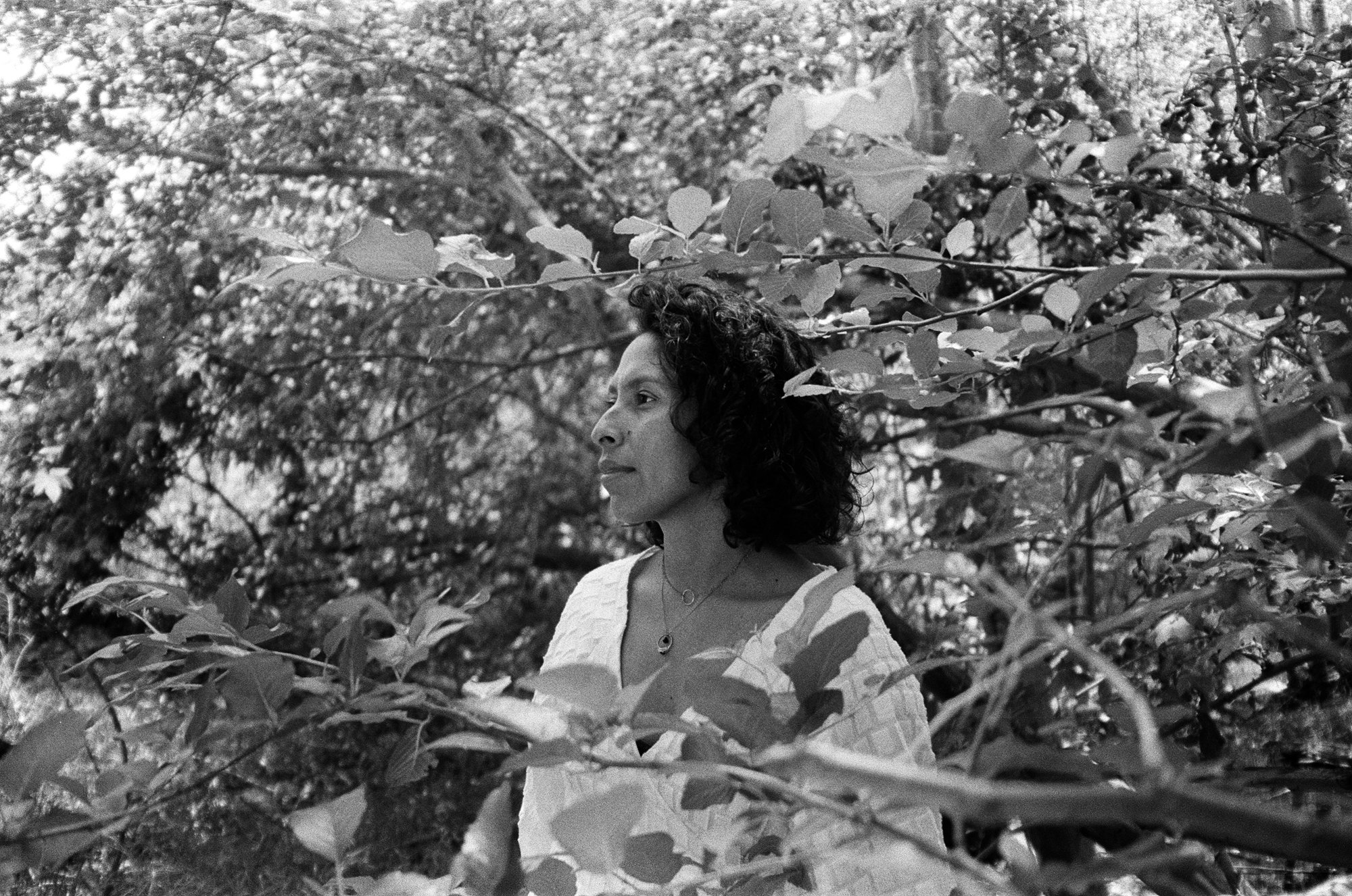
Rosie is an Artist and Mama explore her work at
@ROSIE_PI & @rosiepi_studio
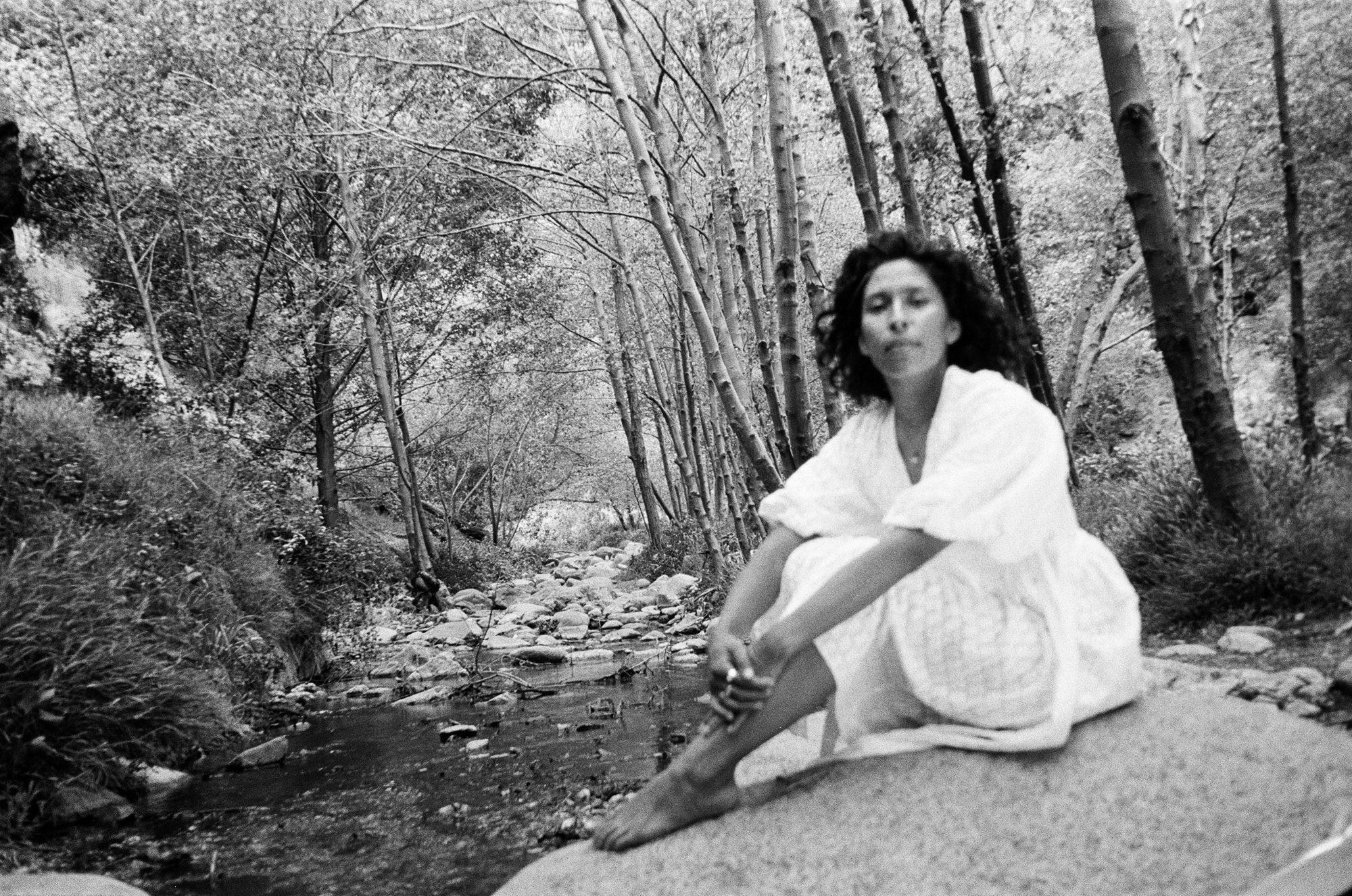
places in the local community that feel like home:
It used to be Atlacatl Restaurant that was literally a home that converted into a restaurant but it sadly closed a few years ago. El Buen Gusto in Atwater Village feels like home because we would come here to eat pupusas with my grandma and extended family so it not only brings back those memories but pupusas will always feel like home.
people in the online community you are inspired by:
@kelmaridesigns not only designs her own jewelry and clothing, but she also sources from other Salvadoran makers to give them a platform on her online shop. She is a mama and pursuing her dream while uplifting her community.
@maitrihealingco offers holistic health and skincare that is rooted in plant medicine and homemade remedies. She is an embodiment of her ideals and her products are a physical manifestation of her connection to Mama Earth.
@centam_beauty is an account ran by @poeticallyzee and is a beautiful offering to the Central American community and aims to reflect back to us the beauty and diversity of our isthmus. She honors the land through sharing of plants and flowers, celebrates the Afrodescendents of Central America, and honors the celebrations and traditions of each country.
